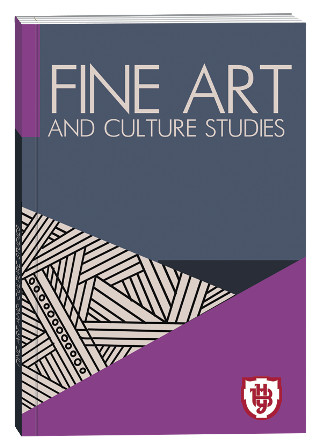THE MOTET GENRE IN THE CHORAL HERITAGE OF RICHARD STRAUSS: COMPOSITIONAL INNOVATIONS AND ARTISTIC FEATURES (ON THE EXAMPLE OF THE “DEUTSCHE MOTETTE” OP. 62)
DOI:
https://doi.org/10.32782/facs-2025-3-1-3Keywords:
works by Richard Strauss, genre, German choral music, motetAbstract
The relevance of the study is stipulated by the need for a deeper comprehension of the role of choral writing in the period of R. Strauss’s mature work, analysis of the transformation of the motet tradition in the context of modernist searches of the early twentieth century, as well as revealing the connections between compositional technique, verbalcontent and artistic idea. The study of the motet as a genre phenomenon in the context of German choral culture allowsnot only to highlight the individuality of R. Strauss’s authorial style, but also to outline new approaches to the performing interpretation and contemporary reading of this genre, which was rare for the composer. The aim of the article is to studythe specifics of the motet as a genre phenomenon in the choral heritage of Richard Strauss on the example of the “Deutsche Motette” Op. 62. The analytical approach is used to trace the transformation of the traditional German motet intoa modern synthetic form that combines polyphonic skill, symphonic thinking and philosophical load. The methodological basis of the study is a combination of structural, analytical, intertextual and stylistic analysis, taking into accountthe context of German choral culture of the nineteenth and early twentieth centuries. The research focuses on the history of the genre, the historical origins of the composition, the specifics of polyphonic writing, harmonic language, drama,and the interaction of text and music. Comparative parallels with the works of J. Brahms, M. Reger and J. Rheinbergerare drawn. The scientific novelty is the analysis and interpretation of the “Deutsche Motette” not as a spiritual vocaland choral genre, but as a post-symphonic genre, from the perspective of which it acquires a new symbolic and constructive meaning. Conclusions. The study has established that the motet in the works of Richard Strauss appears as a unique phenomenon that combines traditional polyphonic models with late Romantic harmony, chromaticism and intense drama.The example of “Deutsche Motette” Оp. 62. reveals an innovative interpretation of the genre: a complex texture, a wide dynamic field, flexible textual recitation and a synthesis of choral and orchestral thinking within the vocal compositionalone. The composer implements the genre model of the motet as a space of philosophical generalisation, where the choralensemble appears as Klangkörper – an integral sound body with a deep spiritual drama.
References
Ткаченко Є. С. Німецький лютеранський мотет XIX – першої половини XX ст. в еволюції жанру : дис. ... канд. мистецтвознавства : 17.00.03 «Муз. мистецтво» / Нац. муз. акад. України ім. П. І. Чайковського. Київ, 2015. 252 c.
Жаркова В. Б. Десять поглядів на історію західноєвропейської музики. Таємниці і бажання Homo Musicus : монографія в 2 т. Т. 1. Київ : ArtHuss, 2018. 344 с.
Blezzard J. Richard Strauss A Cappella. In: Tempo. New Series 176, 1991. Р. 21–28.
Dahlhaus C. Foundations of Music History. Cambridge: Cambridge University Press, 1983. 182 р.
Del Mar N. Richard Strauss: A Critical Commentary on his Life and Works. Bd. 2 London, 1969. 214 р.
Eicher B. “The Choral Works of Richard Strauss” In Choral Music in the Twentieth Century. Cambridge : Cambridge University Press, 2007. 320 р.
Gilliam B. Richard Strauss and his world. Princeton, New Jersey : Princeton University Press. 1992. 429 р.
Kennedy M. Richard Strauss: Man, Musician, Enigma. London : Dent, 1999. 468 р.
Krause E. Richard Strauss Gestalt und Werk. Leipzig : VEB Breitkopf & Härtel, 1989. 538 s.
Lotardo S. Richard Strauss: Motette und Moderne. Berlin : Musikverlag, 2012.
Plantinga L. Romantic Music: A History of Musical Style in Nineteenth-Century Europe. New York : Norton, 1984. 523 р.
Strauss R. Deutsche Motette op. 62. Partitur. München : Adolph Fürstner, 1914. 62 s.
Youens S. Retracing Rückert: Poetic Texts in German Lieder. Yale University Press, 2001. 348 р.








